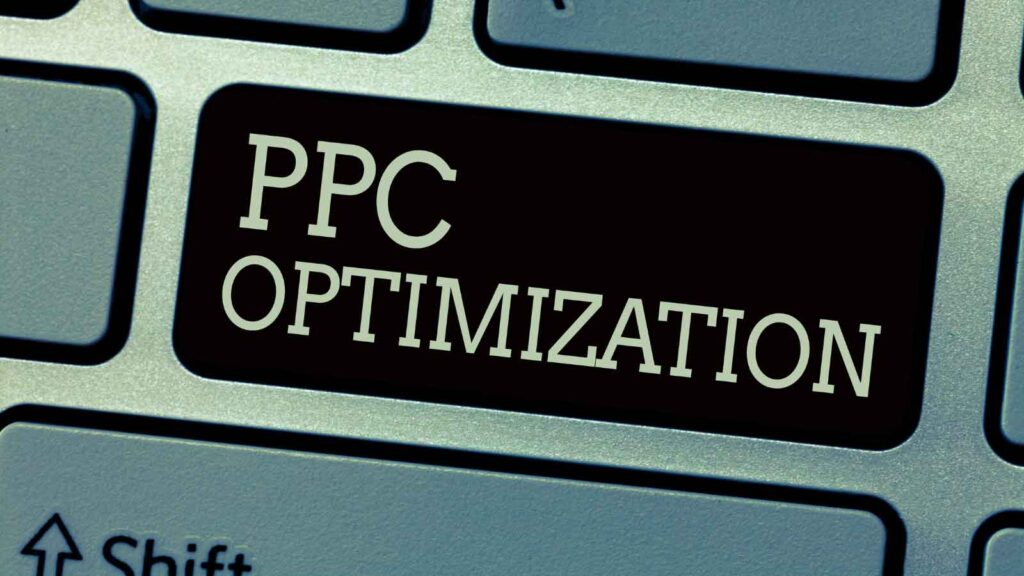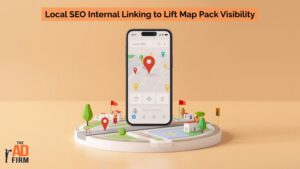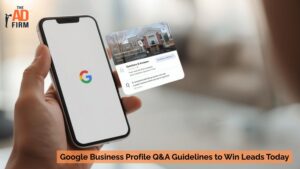PPC advertising is changing fast, and what worked yesterday won’t guarantee results tomorrow. Businesses that rely on outdated tactics will struggle to compete in a digital landscape where automation, audience targeting, and strategic optimization set the standard.
In 2025, the most effective PPC strategies will focus on smarter automation, first-party data, interactive ads, voice search, and hyper-local targeting. Companies that refine their approach with these innovations will see higher conversions, stronger engagement, and better ad performance. Here’s what businesses need to prioritize to maximize their PPC success in the year ahead.
AI-Driven PPC Campaigns for Smarter Optimization
Artificial intelligence (AI) is transforming how businesses approach paid advertising, making campaign management more efficient and results-driven. Instead of relying on manual adjustments, a top PPC agency leverages AI to analyze large volumes of data in real-time, predict user behavior, and automate key decisions.
AI-driven PPC ensures smarter budget allocation, better audience targeting, and continuous ad optimization. Businesses that integrate AI into their PPC campaigns can improve performance by:
- Refining Audience Targeting – AI segments audiences based on search intent, engagement patterns, and past behavior.
- Automating Ad Optimization – AI continuously tests and refines ad creatives, headlines, and messaging for better engagement.
Businesses that implement advanced automation and data-driven strategies will see stronger performance and higher returns on investment, while those relying on outdated methods risk falling behind.
Predictive Bidding & Smart Budget Allocation
Traditional bidding strategies often rely on historical data and manual adjustments, which can lead to inefficiencies and missed opportunities. Predictive bidding removes the guesswork by analyzing real-time user behavior, market trends, and conversion likelihood, ensuring smarter budget allocation.
Predictive bidding improves campaign efficiency by:
- Optimizing Bids in Real Time – AI continuously monitors competition levels and adjusts bids to maintain cost efficiency.
- Targeting High-Intent Users – AI identifies users most likely to convert and prioritizes ad placements accordingly.
- Shifting Budgets to High-Performing Campaigns – AI reallocates spend from underperforming ads to those generating stronger results.
Predictive bidding is especially valuable for eCommerce PPC management. If AI detects a surge in demand for a product, it automatically increases bids to capture more high-intent traffic. Conversely, during lower engagement periods, it reduces spending to prevent wasted ad spend.
Transform Your Online Strategy with The Ad Firm
- SEO: Achieve top search rankings and outpace your competitors with our expert SEO techniques.
- Paid Ads: Leverage cutting-edge ad strategies to maximize return on investment and increase conversions.
- Digital PR: Manage your brand’s reputation and enhance public perception with our tailored digital PR services.
First-Party Data Utilization in PPC Targeting
The decline of third-party cookies is forcing advertisers to rethink how they target and engage users. Relying on third-party data is no longer viable, making first-party data the most valuable asset for PPC campaigns. Businesses that collect and leverage customer-owned data gain deeper insights into their audience, allowing them to run privacy-compliant, highly targeted advertising campaigns.
Using first-party data in PPC has several advantages:
- More Accurate Audience Targeting – Businesses can tailor ads based on direct customer interactions rather than relying on external data sources.
- Higher Conversion Rates – Personalized ads based on real customer preferences and behaviors drive better engagement.
- Compliance with Privacy Regulations – Using data collected with user consent reduces legal risks and builds consumer trust.
To stay competitive in 2025, businesses must refine their PPC strategies by integrating first-party data sources such as CRM systems, website interactions, and user-submitted preferences. This shift improves advertising accuracy, and future-proof campaigns against ongoing privacy changes.
CRM Integration for Enhanced Audience Segmentation
Businesses that effectively integrate customer relationship management (CRM) data into their digital marketing strategy gain a significant advantage. CRM data provides detailed insights into customer behavior, allowing brands to create precise audience segments and craft hyper-targeted campaigns across multiple channels, including PPC, social media marketing, and email marketing.
Leveraging CRM data in PPC enhances performance by:
- Building Detailed Customer Profiles – Combining demographic, behavioral, and purchase data helps tailor campaigns to different audience segments.
- Improving Retargeting Strategies – Businesses can use past purchase history and engagement levels to serve relevant ads to potential repeat customers.
- Increasing Customer Lifetime Value (CLV) – Data-driven segmentation allows advertisers to nurture high-value customers with personalized messaging.
CRM integration is a game-changer for eCommerce PPC management. Businesses can retarget customers with upsell recommendations, loyalty rewards, or special promotions if a customer previously purchased a product. This approach fosters long-term customer relationships and maximizes revenue potential.
Maximize Your Online Impact with The Ad Firm
- Local SEO: Capture the local market with strategic SEO techniques that drive foot traffic and online sales.
- Digital PR: Boost your brand’s image with strategic digital PR that connects and resonates with your audience.
- PPC: Implement targeted PPC campaigns that effectively convert interest into action.
Privacy-Compliant PPC Strategies
With regulations like GDPR and CCPA enforcing stricter data policies, PPC strategies must balance compliance with effective audience targeting. In 2025, businesses can achieve this by implementing opt-in tracking, using contextual advertising, and gathering data directly from users through surveys or interactive content.
As third-party cookies phase out, integrating customer data with CRM systems enhances audience segmentation while maintaining compliance. Businesses that prioritize transparent data collection and privacy-conscious ad strategies will build consumer trust and gain a competitive edge in eCommerce PPC and digital marketing.
Video Ads & Interactive PPC Campaigns
Video advertising has become dominant in PPC agency strategies, with platforms like YouTube, Facebook, and Instagram driving higher engagement and stronger brand recall than static ads. With users consuming more video content than ever, businesses must integrate video PPC campaigns into their paid advertising strategy to remain competitive.
Interactive video formats, such as clickable and shoppable ads, further enhance engagement by allowing users to take immediate action. Whether it’s eCommerce PPC management or brand awareness campaigns, video ads are now essential to high-performing PPC strategies.
The Rise of YouTube & Social Media Video Ads
YouTube, Instagram, Facebook, and TikTok have reshaped how brands reach and engage their audiences. With short-form videos and interactive storytelling, businesses can captivate potential customers, making video ads a must-have for PPC success in 2025.
Key benefits of YouTube and social media video ads include:
- Higher Engagement Rates – Video content keeps users engaged longer than static ads, leading to better ad performance and increased brand retention.
- Optimized for Mobile – Short-form videos on Facebook Reels, Instagram Stories, and TikTok Ads cater to mobile users, delivering quick, digestible content that aligns with scrolling behavior.
- Flexible Ad Formats – YouTube offers both skippable and non-skippable ads, allowing businesses to tailor their campaigns based on marketing objectives and user preferences.
- Interactive Elements – Features like polls, call-to-action overlays, and in-video links encourage viewer participation, boosting conversions.
For businesses focused on eCommerce PPC management, video ads provide an opportunity to showcase product features, demonstrate value, and guide potential buyers through the purchasing journey. As more users prefer visual content, leveraging video ads in PPC campaigns will be essential for standing out in a crowded digital landscape.
Boost Your Business Growth with The Ad Firm
- PPC: Optimize your ad spends with our tailored PPC campaigns that promise higher conversions.
- Web Development: Develop a robust, scalable website optimized for user experience and conversions.
- Email Marketing: Engage your audience with personalized email marketing strategies designed for maximum impact.
Clickable & Shoppable Ads for Higher Engagement
Interactive ad formats have redefined how users engage with PPC campaigns, making the transition from discovery to conversion more seamless. Clickable and shoppable ads remove friction from the buying process, allowing users to complete purchases without leaving the ad platform. This streamlined approach improves conversion rates and enhances user experience.
Key interactive ad formats driving engagement include:
- Shoppable Ads & Click-to-Buy Features: Social media platforms like Instagram, Facebook, and Pinterest enable businesses to showcase products within ads, allowing users to make direct purchases with a single tap.
- In-Ad Surveys & Polls: These interactive elements encourage user participation while providing valuable consumer insights that improve targeting and messaging.
- Gamified Ads & Interactive Content: Quizzes, challenges, and reward-based experiences boost engagement and brand recall, making advertisements more memorable.
As digital marketing evolves, consumers expect more engaging and visually dynamic ad experiences. Brands that incorporate these interactive features into their paid campaigns enhance user participation and stand out in an increasingly competitive landscape.
The Growth of Voice Search & Conversational PPC
Voice search is transforming how users find information, make purchases, and interact with businesses online. With smart assistants like Alexa, Siri, and Google Assistant handling millions of daily voice queries, PPC strategies must evolve to match natural language patterns and conversational search behaviors.
Optimizing PPC for Voice Search Keywords
Most voice searches are structured as questions or complete sentences, making them significantly different from traditional typed search queries. Instead of short, fragmented keywords like “top digital marketing agency,” voice searches often take the form of long-tail phrases like “What is the best PPC agency near me?”
To capitalize on voice search PPC, businesses should:
- Target Long-Tail, Conversational Keywords – Incorporate natural language phrases into ad campaigns to match how people speak when using voice search.
- Optimize Landing Pages for Spoken Queries—Structure landing page content to answer common voice search questions clearly and concisely.
- Leverage Structured Data & Schema Markup – Improve search engine visibility by adding schema markup, making it easier for smart assistants to extract relevant content for voice search results.
- Focus on Local Search Optimization – Many voice searches include “near me” terms, so geo-targeted PPC ads, and localized content can drive more conversions.
With voice searches projected to grow, businesses that adjust their PPC targeting to align with spoken language patterns will capture a larger share of high-intent, voice-driven traffic.
Strengthen Your Online Authority with The Ad Firm
- SEO: Build a formidable online presence with SEO strategies designed for maximum impact.
- Web Design: Create a website that not only looks great but also performs well across all devices.
- Digital PR: Manage your online reputation and enhance visibility with strategic digital public relations.
AI Chatbots & PPC Lead Generation
AI-powered chatbots are revolutionizing PPC landing pages by engaging visitors the moment they arrive, reducing bounce rates, and instantly qualifying leads. When combined with conversational PPC strategies, chatbots can provide real-time answers, personalized recommendations, and automated customer support—all crucial for improving conversion rates.
Key advantages of chatbot integrations in PPC campaigns include:
- Instant Engagement – Chatbots capture user interest immediately, preventing potential customers from leaving without interacting.
- Lead Qualification – Automated responses filter out unqualified leads, ensuring that sales teams only engage with high-value prospects.
- Dynamic Messaging – AI adapts chatbot conversations based on user queries and past interactions, creating personalized customer journeys.
- Seamless Integration with PPC Landing Pages – Chatbots provide an interactive, guided experience that keeps visitors engaged instead of sending users to static forms.
For eCommerce PPC management, chatbots can recommend products, handle checkout inquiries, and reduce abandoned carts. In service-based industries, AI-powered assistants answer FAQs, schedule consultations, and direct leads to human representatives for further engagement.
Hyper-Localized PPC & Micro-Moment Targeting
Hyper-localized PPC strategies ensure businesses capture high-intent users searching for immediate solutions. By leveraging geo-targeting, localized ad copy, and intent-driven keywords like “best coffee shop near me,” brands can connect with nearby consumers at the perfect moment. Integrating micro-moment targeting allows businesses to meet users’ needs instantly, driving both online engagement and offline conversions.
Geo-Fencing & Location-Based PPC Ads
Geo-fencing is a powerful PPC strategy that allows businesses to serve ads only to users within a specific geographical area. By defining virtual boundaries, advertisers can target potential customers in real-time when they are physically close to a storefront, competitor location, or event venue.
Key benefits of geo-fenced PPC campaigns include:
- Targeting High-Intent Users – Show ads to users who are near a business location, competitor’s store, or industry event, increasing the chances of conversion.
- Location-Based Bid Adjustments – Allocate higher ad spend to high-value areas where customers are more likely to take action.
- Personalized Ad Messaging: To make the campaign more relevant to local users, Include city, neighborhood, or landmark references in ad copy.
- Event-Based Advertising – Capture audiences attending local events, concerts, or trade shows by delivering timely promotions.
For brick-and-mortar businesses, geo-fencing ensures that ads reach potential customers exactly when they are nearby and likely to visit.
Elevate Your Market Presence with The Ad Firm
- SEO: Boost your search engine visibility and supercharge your sales figures with strategic SEO.
- PPC: Target and capture your ideal customers through highly optimized PPC campaigns.
- Social Media: Engage effectively with your audience and build brand loyalty through targeted social media strategies.
PPC for “Near Me” Searches & Instant Conversions
Search queries containing “near me” have skyrocketed in recent years, reflecting high purchase intent. Users conducting local searches are actively looking for businesses, products, or services within their immediate surroundings. Optimizing PPC campaigns for these searches ensures that businesses appear at the top of search results when it matters most.
How to optimize PPC for “near me” searches:
- Use Local Keywords in Ad Copy – Phrases like “best PPC agency near me” or “eCommerce PPC management in Los Angeles” align with user intent and improve ad relevance.
- Enable Location Extensions – Display store addresses, contact details, and directions within ads to drive immediate action.
- Optimize Google My Business Listings – Ensure accurate business details, operating hours, and customer reviews to increase ad credibility and CTR (click-through rate).
- Run Call-Only Ads – Many local search users prefer calling a business immediately, making click-to-call ads an effective way to drive instant leads.
- Highlight Urgency & Promotions – Limited-time offers and “walk-in today” messages encourage customers to take immediate action.
The shift towards mobile-driven, location-based searches means businesses must adapt their PPC campaigns to match local search behavior. Whether targeting walk-in customers, promoting time-sensitive deals, or outbidding competitors in high-value areas, hyper-localized PPC advertising ensures maximum impact.
Future-Proof Your PPC Strategy
PPC advertising in 2025 will require businesses to embrace automation, first-party data, video and interactive ads, voice search optimization, and hyper-local targeting. By adopting these innovative strategies, companies can stay ahead of the competition and maximize ROI.
At The Ad Firm, we specialize in strategic, high-performance PPC campaigns that deliver measurable results. Whether you’re looking to leverage AI for smarter bidding, optimize for voice search, or refine hyper-local targeting, our team of PPC experts is ready to help. Don’t let outdated PPC strategies limit your growth. Contact The Ad Firm today!






